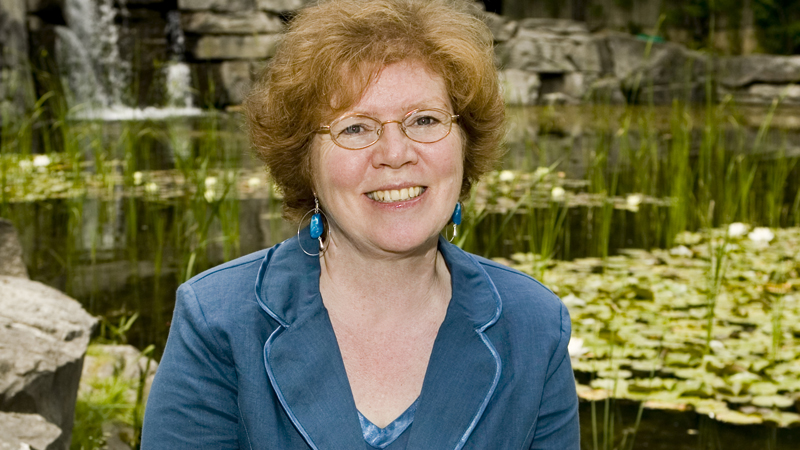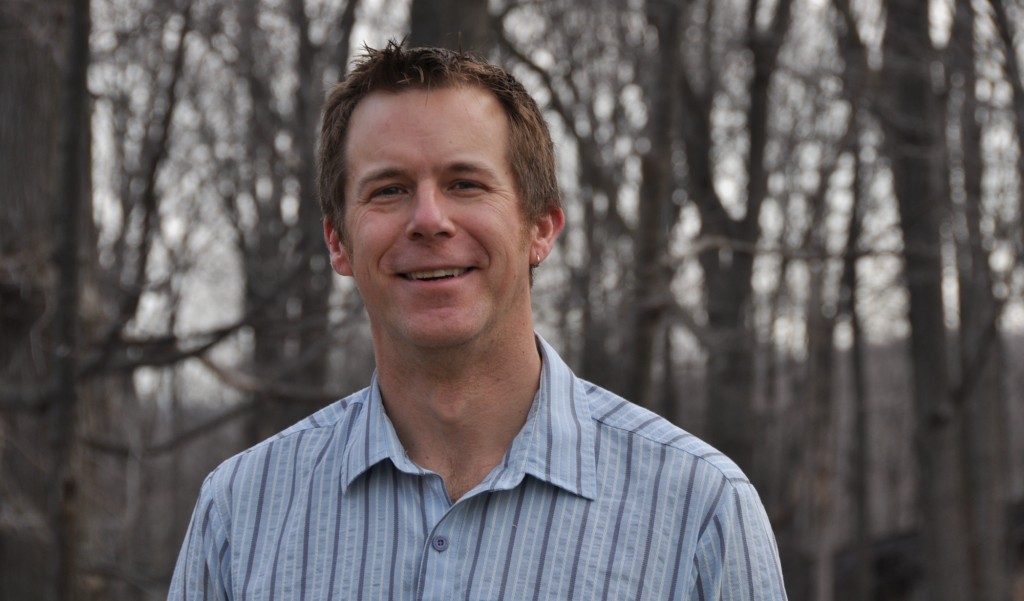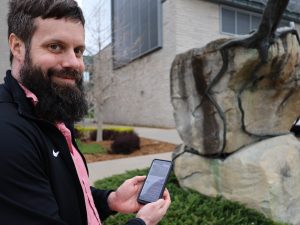Students at Brock benefit from the commitment and expertise of faculty at the University who provide an innovative and student-centred research and learning environment. Their influence engages students to think creatively and critically both inside and outside the classroom.
Brock will honour two faculty members for their outstanding contributions to research and teaching at Fall Convocation on Saturday, Oct. 13.
Diane Dupont, a professor in the Department of Economics, will receive the Brock University Award for Distinguished Research and Creative Activity. This award recognizes faculty members who demonstrate outstanding research achievements, contributions toward the training of future researchers, and consistency in scholarly or creative performance.
Tim O’Connell, a professor in the Department of Recreation and Leisure Studies, will receive the Brock University Award for Distinguished Teaching. The award recognizes a faculty member who has made a significant commitment to providing and developing quality learning experiences for students, in addition to making valuable contributions in curriculum development and the mentoring of colleagues.
O’Connell will receive his award at Saturday’s 10 a.m. ceremony. Dupont will receive her award at the 2 p.m. ceremony and deliver the afternoon’s Convocation address.
More than 800 students are expected to receive their degrees at Fall Convocation. All ceremonies will be held in the Ian D. Beddis Gymnasium and a reception for graduates, family members and other special guests will be held after each ceremony.
Brock University Award for Distinguished Research and Creative Activity: Professor Diane Dupont, Department of Economics, Faculty of Social Sciences

Diane Dupont
Professor Diane Dupont is a resource and environmental economist. She achieves excellence in her work by adopting cutting edge methods in her research that looks at fisheries and other resources, and human health issues as they relate to water. Water issues are a growing concern in Canada and Dupont is one of our country’s leading experts when it comes to the economics of water use.
Throughout her career, Dupont has produced a strong and influential body of research. In the last three years, Dupont has published nine articles in peer-reviewed journals of the highest quality. These include two in the Journal of Environmental Economics and Management and one each in the Review of Economics and Statistics, Land Economics, and Ecological Economics.
In the last six years, Dupont has made more than 30 presentations of her research to national and international academic associations including the 4th World Congress of Environmental and Resource Economists, the American Agricultural Economics Association, the Canadian Resource and Environmental Economists, the Canadian Economics Association, and the United Kingdom’s Agricultural Economics Society.
Dupont’s research has also been awarded funding regularly from national competitions. She has received funding from Canada’s major funding agencies, the Social Sciences and Humanities Research Council of Canada (SSHRC), the Canadian Institutes of Health Research (CIHR), and the Canadian Water Network, which was created by the Networks of Centres of Excellence program supported in part by Natural Sciences and Engineering Research Council of Canada (NSERC) funding.
She has been awarded more than $1-million of research funding in the last 12 years and in that same time period has also been successful in securing continuous funding over the lifetime of the Canadian Water Network.
This year, she was a co-applicant on a $2.3-million SSHRC Partnership Grant to form the Water Economics, Policy and Governance Network. The network is made up of 21 internationally recognized researchers and 35 partner organizations. This includes government agencies – from municipalities, to provincial ministries and federal departments – First Nations communities, and industry groups like the Canadian Water Resources Association and Canadian Water and Wastewater Association.
Dupont has displayed a genuine curiosity for scientific inquiry by seeking out new areas of research and methods of analysis. Her work has pushed the boundaries of her own discipline and moved beyond disciplinary constraints to embrace multiple perspectives. At Brock, she has demonstrated an ability to foster spaces for transdisciplinary research, including the development of the University’s Environmental Sustainability Research Centre.
Throughout her career Dupont has made a point of mentoring young scholars and has worked hard to be a role model for young women in academia. She has made a significant impact in training of undergraduate and graduate students both at Brock and at other institutions through the widely used graduate-level textbook The Economics of the Environment and Natural Resources that she co-authored in 2004.
Brock University Award for Distinguished Teaching: Professor Tim O’Connell, Department of Recreation and Leisure Studies, Faculty of Applied Health Sciences

Tim O'Connell
Experiential education is defined as “a philosophy and methodology in which educators purposefully engage with learners in direct experience and focused reflection in order to increase knowledge, develop skills and clarify values.”
Professor Tim O’Connell’s teaching philosophy resonates with and applies this definition when he invites his students to “walk across the curriculum,” for they engage with academic content in an experiential framework. As O’Connell formulates it, “I follow the old adage of ‘See one, do one, teach one,’ and provide practical experiences and combine them with theory and reflection.”
O’Connell’s teaching evaluations are among the highest quantitative scores in the Faculty of Applied Health Sciences. The qualitative comments provided by his students clearly indicate that his students – both current and former – recognize and value both his expertise in the discipline and his skill as a teacher.
He is known as a co-founder of BaseCamp, an outdoor experiential orientation program. Prior to the start of term, incoming students take part in a variety of outdoor trips that are led by current Brock students. Through this experience the new students build community through the peer mentorship of current students, gain experience as outdoor leaders, and acquire information on healthy choices, understanding diversity and living away from home.
A colleague observes that O’Connell is also known for his research in reflective journaling and how he applies that research to his teaching: “While these areas of inquiry have certainly impacted the research and pedagogical literature around the world, I have been most impressed with how Tim applies the themes present in his research in his teaching practice. Tim’s courses often include the journaling components he writes about, and I have personally used Tim’s articles on journaling in my own courses with great success to inspire guided reflection during field and classroom experiences.”
In 2011, O’Connell was named the recipient of the Faculty of Applied Health Sciences Award for Teaching Excellence. In April 2012, he was announced as a recipient of a prestigious Chancellor’s Chair in Teaching Excellence, which provides funding for research in the scholarship of teaching and learning over three years. He has been involved with the workshop program of the Centre for Pedagogical Innovation. After he won the Faculty award for teaching excellence in 2011, he took part in the Instructional Skills Workshop, a three-day intensive teaching skills development course, modeling continued professional development as a life-long learner.
A graduate student observed that O’Connell has been described as “the leader who is not known” because he carries himself with such pedagogic humility, an indication of selfless teaching. Another former student, now employed outside of Brock, writes: “As an educator, he does not assume to be the holder of knowledge, but rather supports students in answering their own questions. Above all, Dr. O’Connell nurtures curiosity and helps to create a supportive and encouraging environment in which to learn.”









